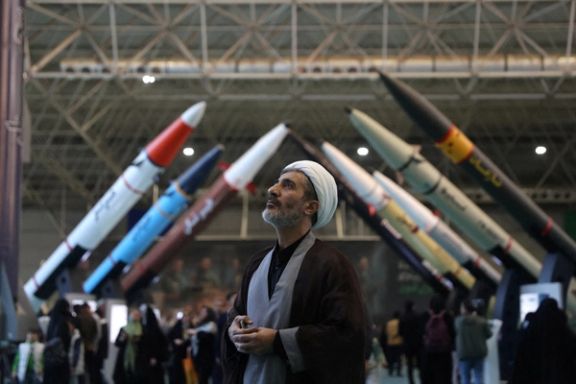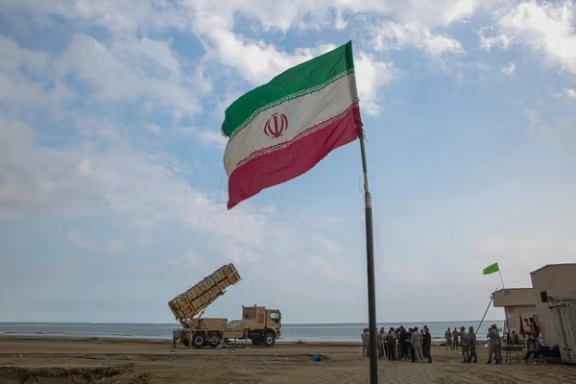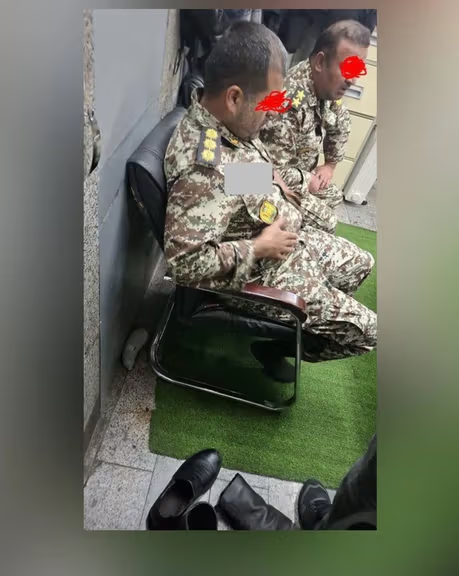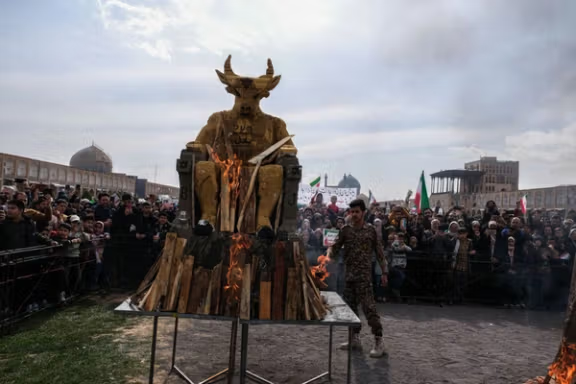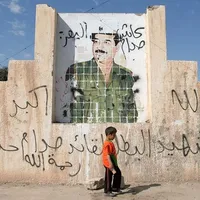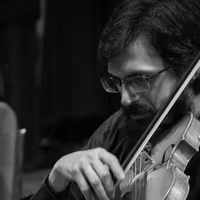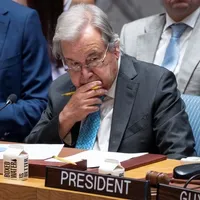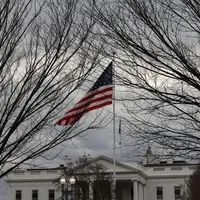Asked in a 2017 interview about his 'success', Hamidreza Aref, son of moderate politician Mohammadreza Arf, said with calm assurance that his talents were inherited.
"I’m proud to say that my abilities come from two good genes," he added, "one from my father and one from my mother.”
The “good gene” generation was never defined by ideology but by access, the invisible currency of name, family and connection.
In a country where most citizens fight for the barest margin of survival, the noble-born inherit both the stage and the script.
It’s close to midnight in Tehran when I open the phone lines for my live call-in show, The Program. The night’s question is simple but piercing: Why have so many children of Iran’s political elite left the country their fathers built, and what are they doing in the West?
Within minutes, the microphone that begins in my hand belongs to the people.
The conversation ignited after photographs surfaced online showing the daughter of a senior Revolutionary Guard commander, one of the architects of Iran’s “cultural jihad” and a defender of compulsory veiling, living freely in Australia.
No veil. No slogans. No fear. Sometimes a single image can dissolve decades of propaganda.
This one exposed the contradiction at the heart of the Islamic Republic: a state that has spent forty-some years warning its citizens of Western corruption while quietly sending its own families to live within it.
The father’s ideology collapses in the daughter’s freedom. She doesn’t need to rebel; she only needs to exist and live her life.
Calls pour in. From Tehran, a mother describes the daily arithmetic of survival, rising prices, shrinking futures, the quiet negotiations with fear. From Khuzestan, a woman recounts raising two children while the authorities police her clothing more zealously than their own corruption.
Power preaches sacrifice at home and practices privilege abroad.
Ordinary Iranians sell heirlooms, borrow from relatives, and wait years for visas. The powerful simply transfer assets and arrive with ease. It isn’t exile, it’s insurance: a second passport for the family while the father appears on state television condemning the West.
In Farsi, we have a phrase for this duplicity: yek bam o do hava, meaning one roof and two climates. The body stays in Iran; the future does not.
This hypocrisy has roots. After the Iran-Iraq War, during the so-called Reconstruction Era, a new class emerged, publicly pious, privately prosperous. Their children became the first generation of Aghazadeh, literally “the noble-born.” Around them grew an ecosystem of lobbyists, academics, and businessmen who laundered not only money but meaning, translating repression into the vocabulary of “cultural nuance.” You can find them now in Western universities and think tanks, where moral clarity often gives way to the comfort of complexity.
But the leadership has misread its own people. The young Iranians who call my show, students, teachers, workers, aren’t asking for Western salvation; they’re asking for a normal life at home. A seventeen-year-old from a provincial town once listed Iran’s riches, its gas, its minerals, its history, and then asked a question no economist could answer: “Why does a land so rich make its children feel so worthless?”
For readers outside Iran, it may be tempting to treat such stories as distant tragedies. Don’t. What you’re hearing is a society struggling to reclaim the simplest tools of citizenship: free speech, accountability, choice.
The photographs of officials’ children living comfortably in Western cities are not gossip; they are evidence. If the guardians of a revolution refuse to let their own families live under its rules, why should anyone else?
There is another revolution already underway, quiet, persistent, deeply human. A mother keeping her son out of prison, a teacher urging her students to ask questions, a teenager refusing the false choice between exile and obedience.
What ends on nights like these is not faith or tradition but the official story of power. What begins is the practice of freedom, first in conversation, then in life.
The microphone is open. The nation answers. The show ends. I close my eyes and whisper to myself, we need a Martin Luther King.
